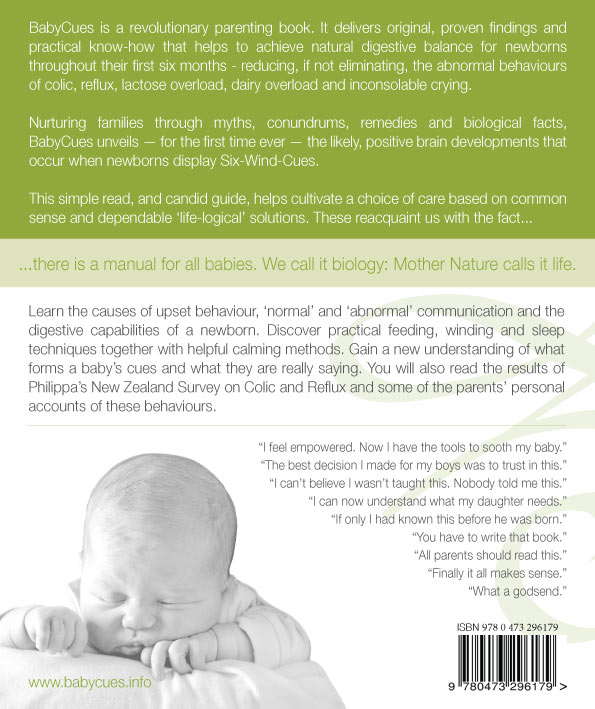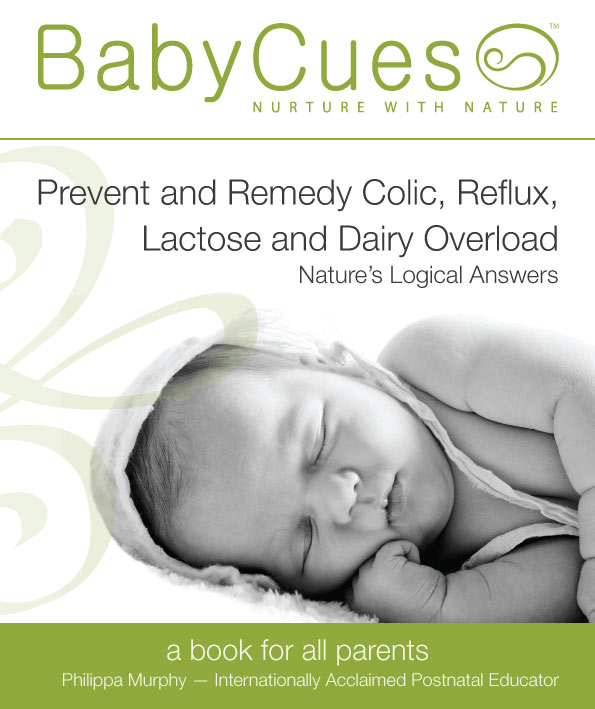Your babies REAL tired cues

Extracts from BabyCues book
In my early career I believed that the widely taught signs, listed at the end of this paragraph, meant a baby was tired. I was trained, like many still are today, that these cues were not to be ignored because if you missed the tired signs, or delayed in placing your baby to bed, they would quickly become over-tired. This would cause their communication to escalate, sometimes for hours on end. It was because of this teaching I used to continuously place newborns into bed in my early career, when I witnessed the listed cues. Only to find they would not go to sleep, or they would wake minutes later.
Widely taught tired signs are
- rubbing of eyes
- staring off into space
- yawning
- fluttering eyelids
- sucking on fingers
- grizzling, crying or screaming
- clenched fists
- jerky arms and legs movements
- arching backwards
- startling easily.
Get the help you need
Hailed as a game changer, life-saver and a must read from parents and postnatal professionals, this self-help book truly has the answers that NATURALLY prevent and heal the symptoms of colic, reflux, silent reflux, the witching hour and lactose and dairy overload - aka Digestive Overload, the true cause of these symptoms.


- nurture your child's digestive system
- Burp your baby to comfort
- Understand their Six-Wind-Cues
- Calm baby with techniques that work


LEARN HOW TO
- nurture your child's digestive system
- Burp your baby to comfort
- Understand their Six-Wind-Cues
- Calm baby with techniques that work
Gradually questions arose for me
If the babies were tired, why wouldn't they sleep? Why would they sometimes lay in bed wide eyed, staring off into space, when they had been awake for hours? Why does it look like they are screaming in pain if they are just tired? Why are they waking after ten to forty-five minutes when they have not slept for hours and they are obviously exhausted? Why does this sleepless cycle reoccur? Are we misinterpreting some of the tired cues? Over time, this is exactly what I came to realise.
On spending thousands of hours feeling and observing many a newborn’s movements in the digestive tract and discovering their Six-Wind-Cues, I found that some of the taught cues of tiredness actually related to what was happening in the newborns digestive tract — that they are indeed reacting to wind, gas and movement when the 'tired cues' that follow are exhibited.
STARING OFF INTO SPACE
This is caused by wind and is what I label the Windy Stare. It means your baby needs to burp and if they have this, they generally won’t go to sleep, or not for long, without you releasing that burp.
FLUTTERING EYELIDS
Like staring off into space this is a sign that your baby needs to burp
SUCKING ON FINGERS
This is a natural reflex for our newborns where they explore there world inclusive of their fingers. They also do this more while teething with these symptoms happening exploration, teething, natural reflexes
CRYING OR SCREAMING
A baby that is relaxed in their digestive system and tired does not scream form tiredness or even cry hard – they get grizzly and may cry but without obvious bodily tension
JERKY ARMS, PEDALLING MOVEMENTS, ARCHING BACKWARDS
This is a newborn reacting to the movement in their digestive tract
STARTLE REFLEX
Your baby is feeling insecure and/or they are reacting to a movement in the digestive tract
CLENCHED FISTS
It is a fallacy that clenched fists means a baby is over-tired. This actually indicates distress as it is a baby's instinct to grasp onto something when they feel uncomfortable or insecure. Clenched fists almost always comes with inconsolable crying or screaming and tiredness does not bring about distress to this level. When a baby has clenched fists they are feeling a high level of distress often brought about from digestive discomfort. A comfortable baby has relaxed hands when they are tired and ready for bed.
You only need to start feeling your baby's digestive movement to ascertain how the cues above coincide with each other. Once you observe a baby who is being nurtured with what I call Bio-logical Care – life logical care - thus nurtured alongside their full cues and their natural capacities and capabilities, you can't help but know that we have been somewhat confused with what their cues truly mean. So what are a baby's real tired cues then?
Real Tired Cues
To establish long, settled, developmental sleep for your baby you need to administer the appropriate care to calm the digestive processes each time the above cues occur, while recognising their actual tired cues.
- rubbing of eyes
- drooping eyes
- redness around eyes — this can also be apparent after feeding
- yawning — also apparent on waking
- unclenched hands
- relaxed body
- grizzling
- falling asleep after the appropriate awake time for their age.




